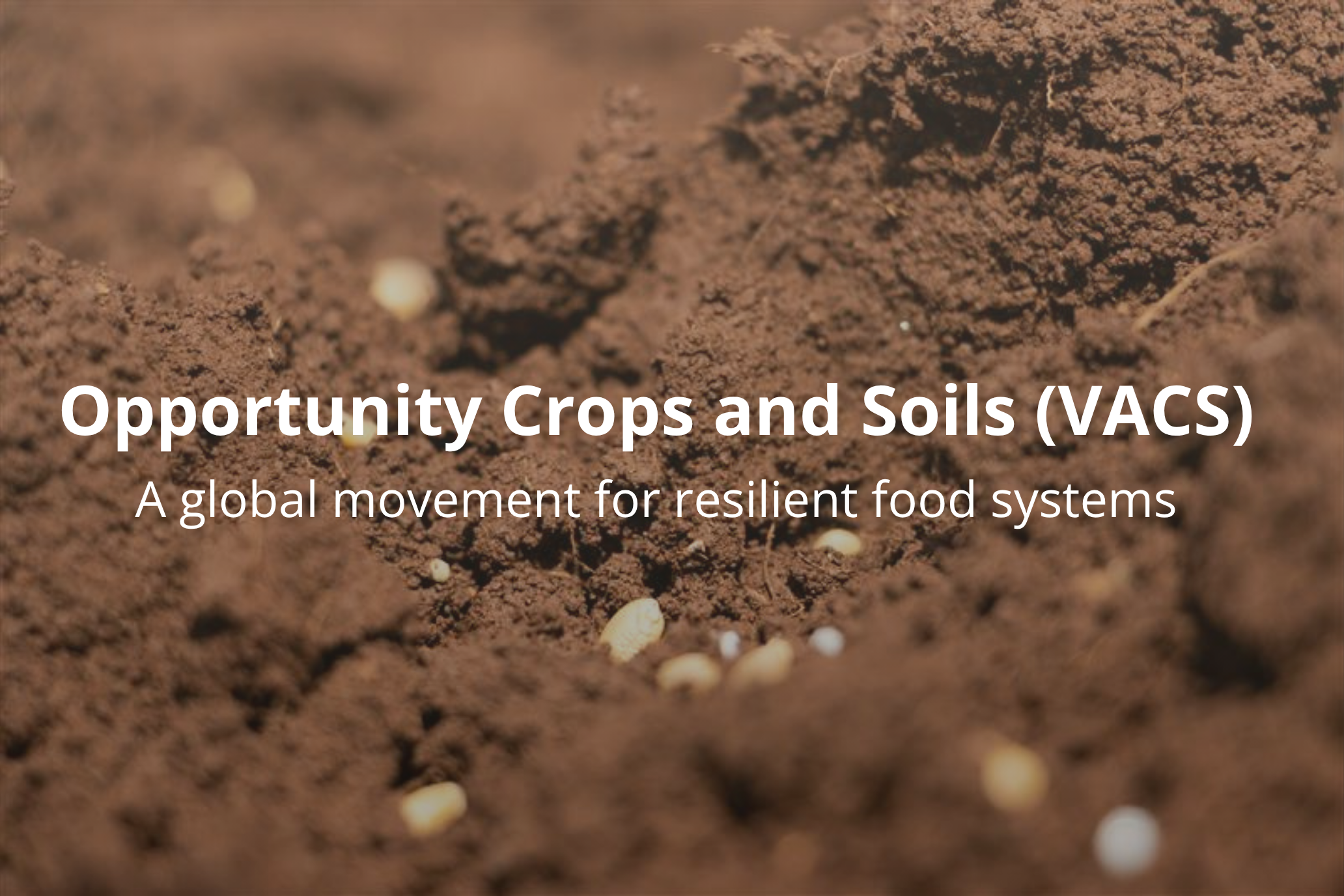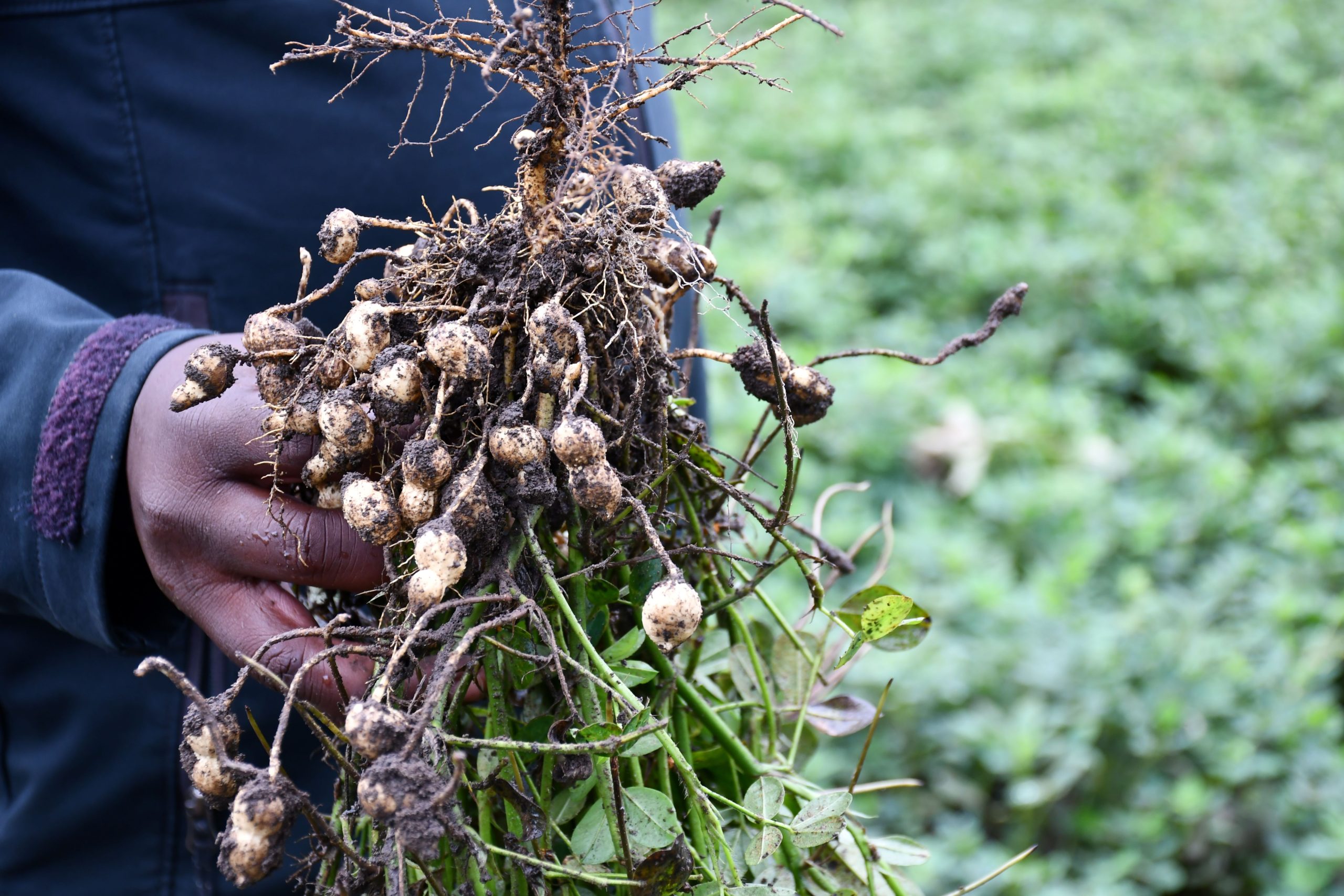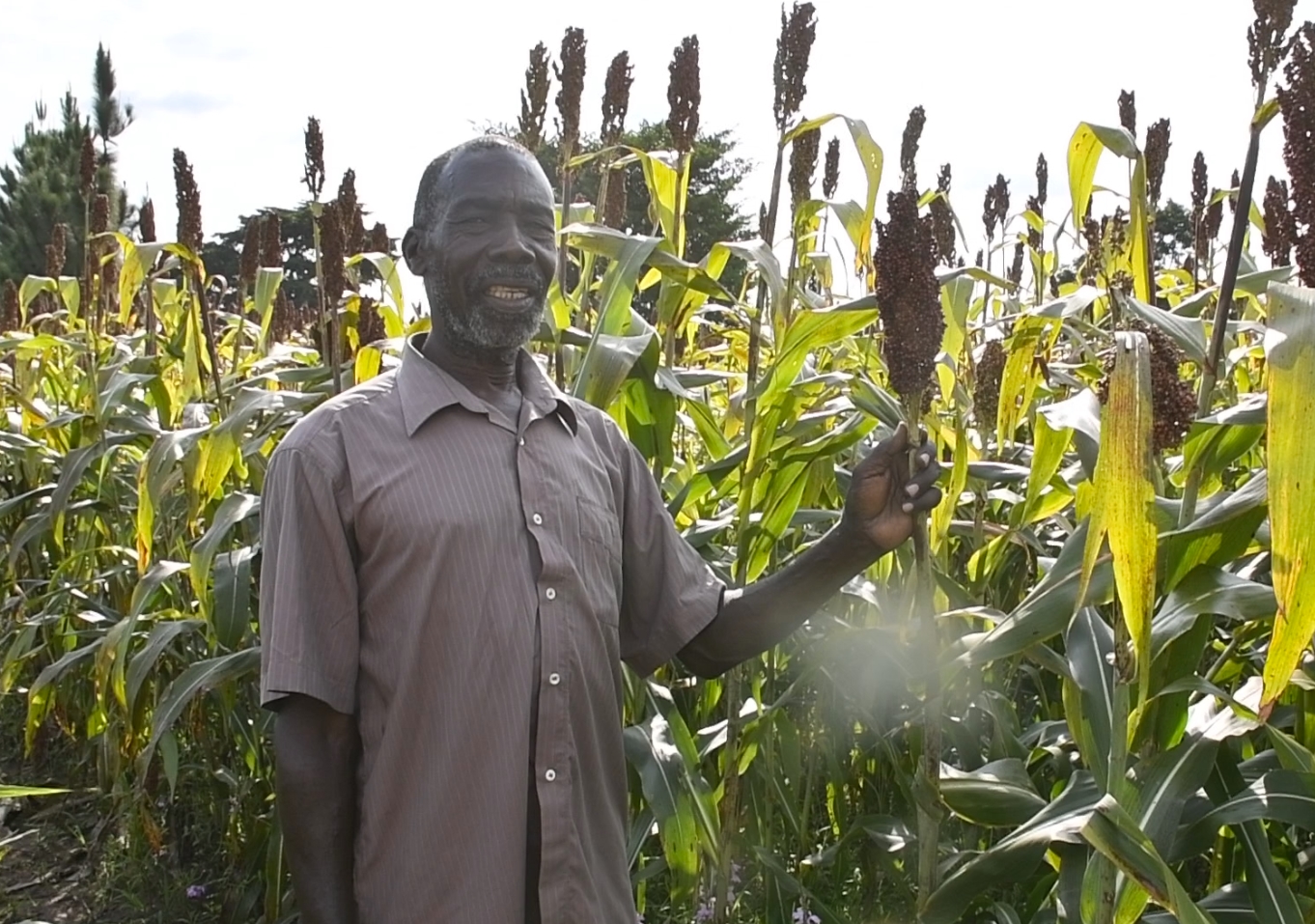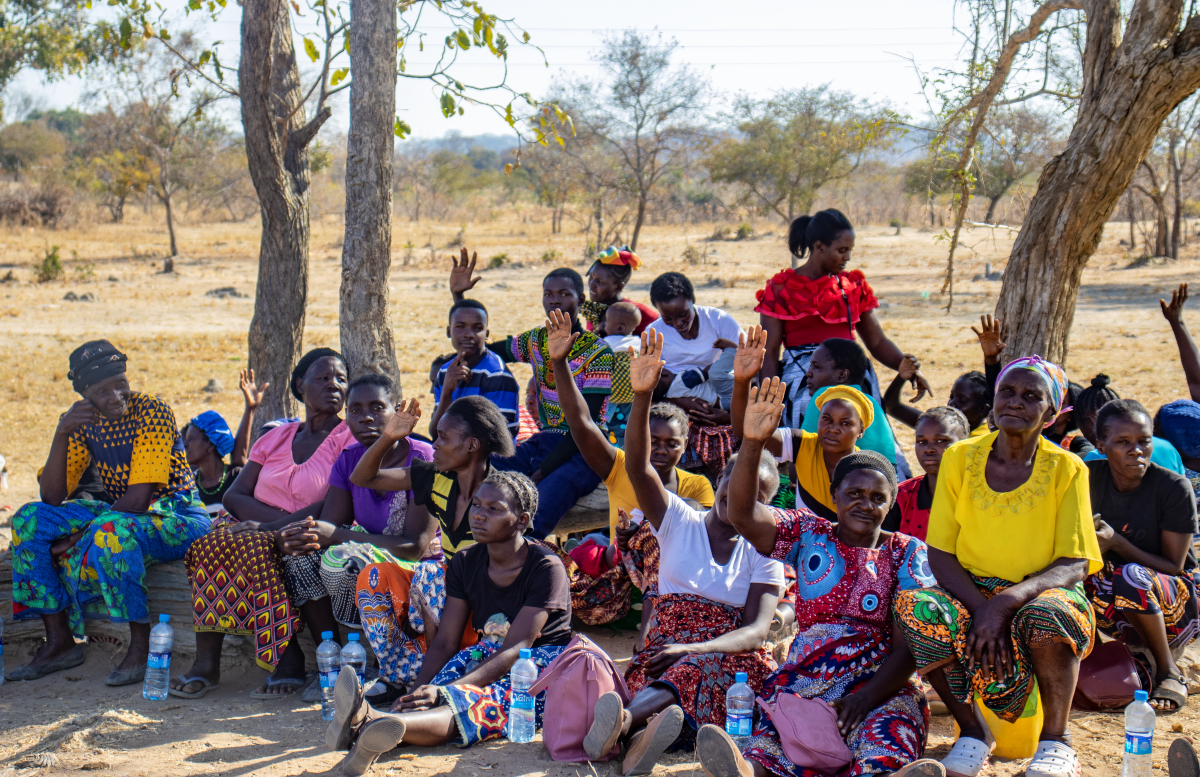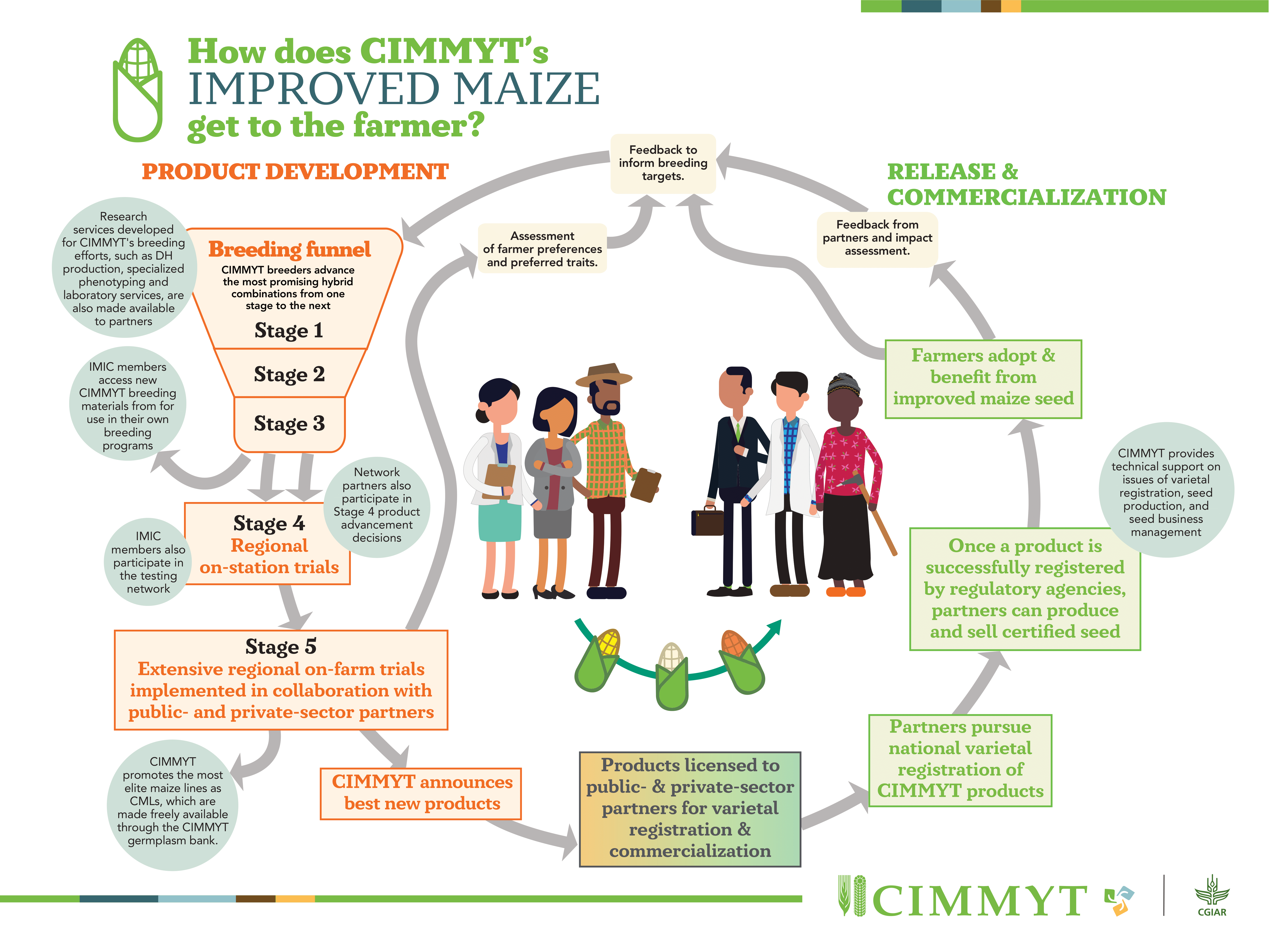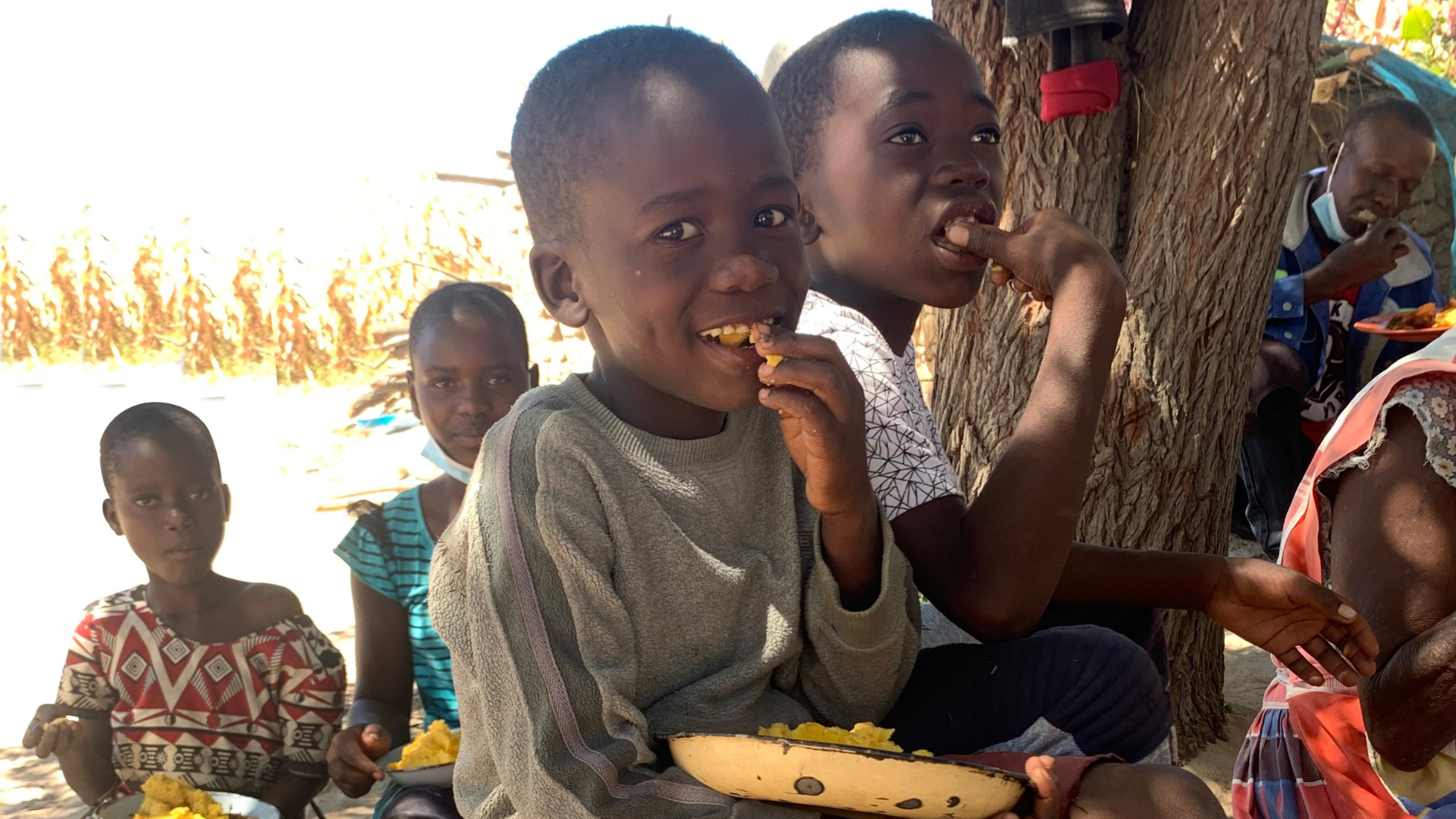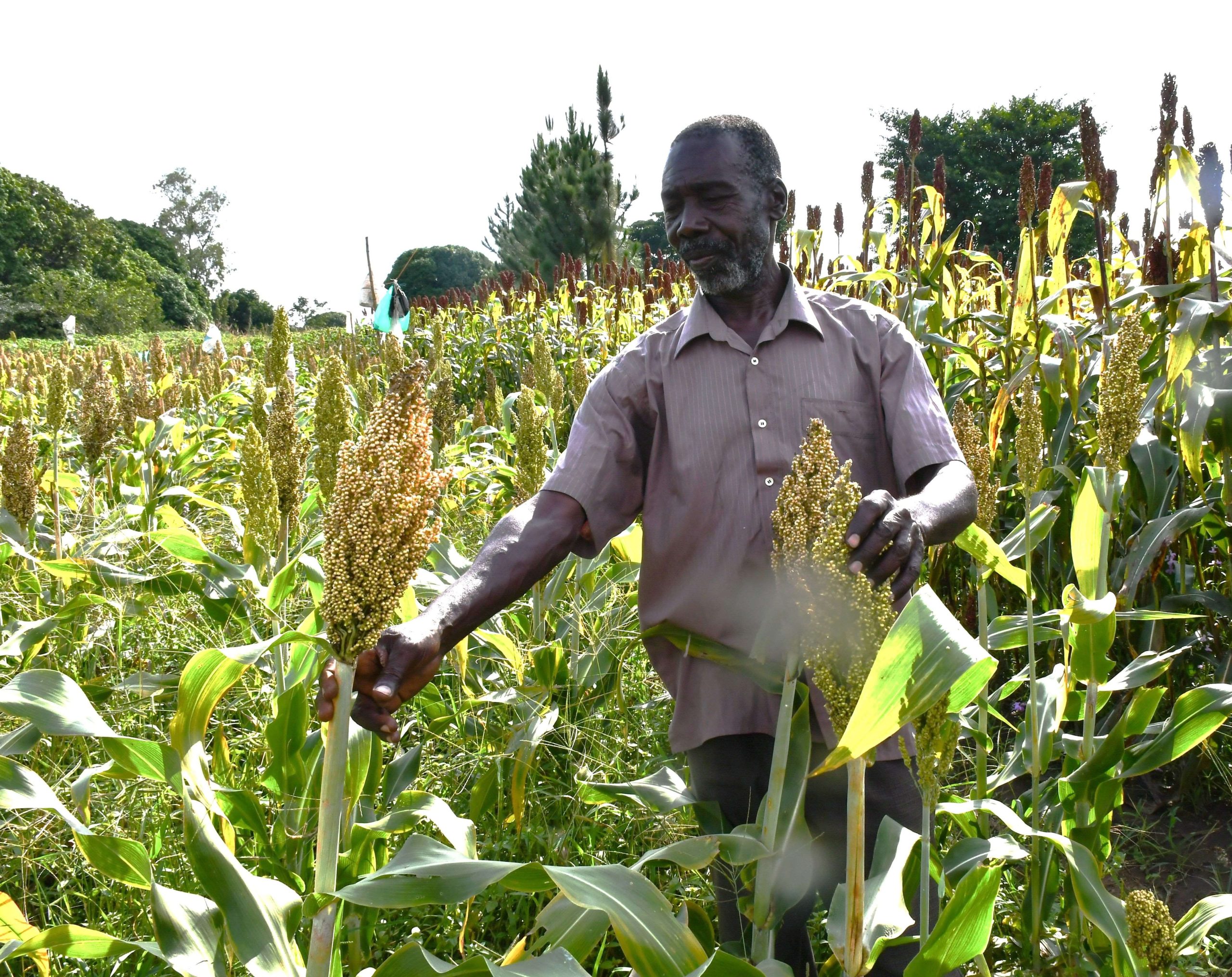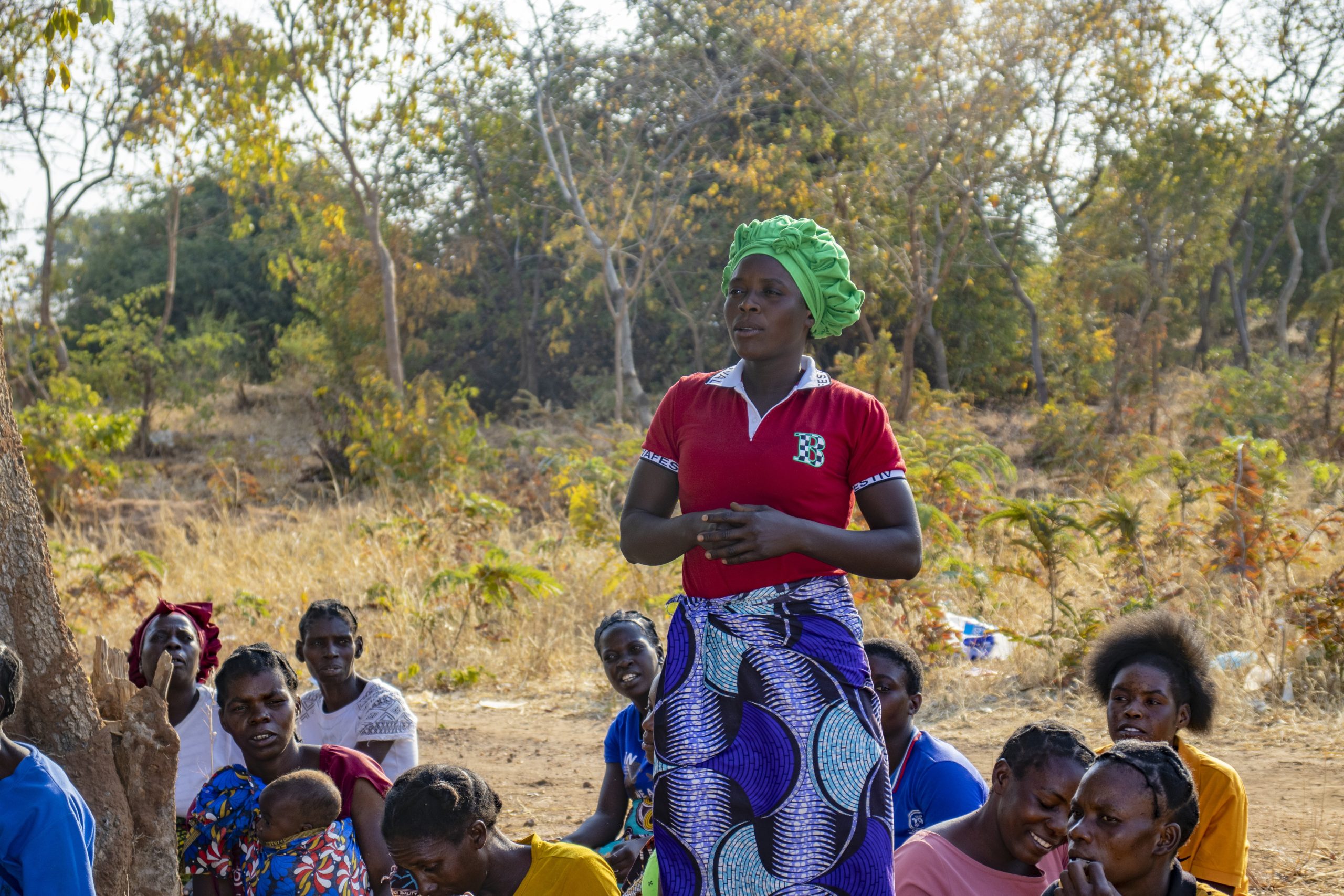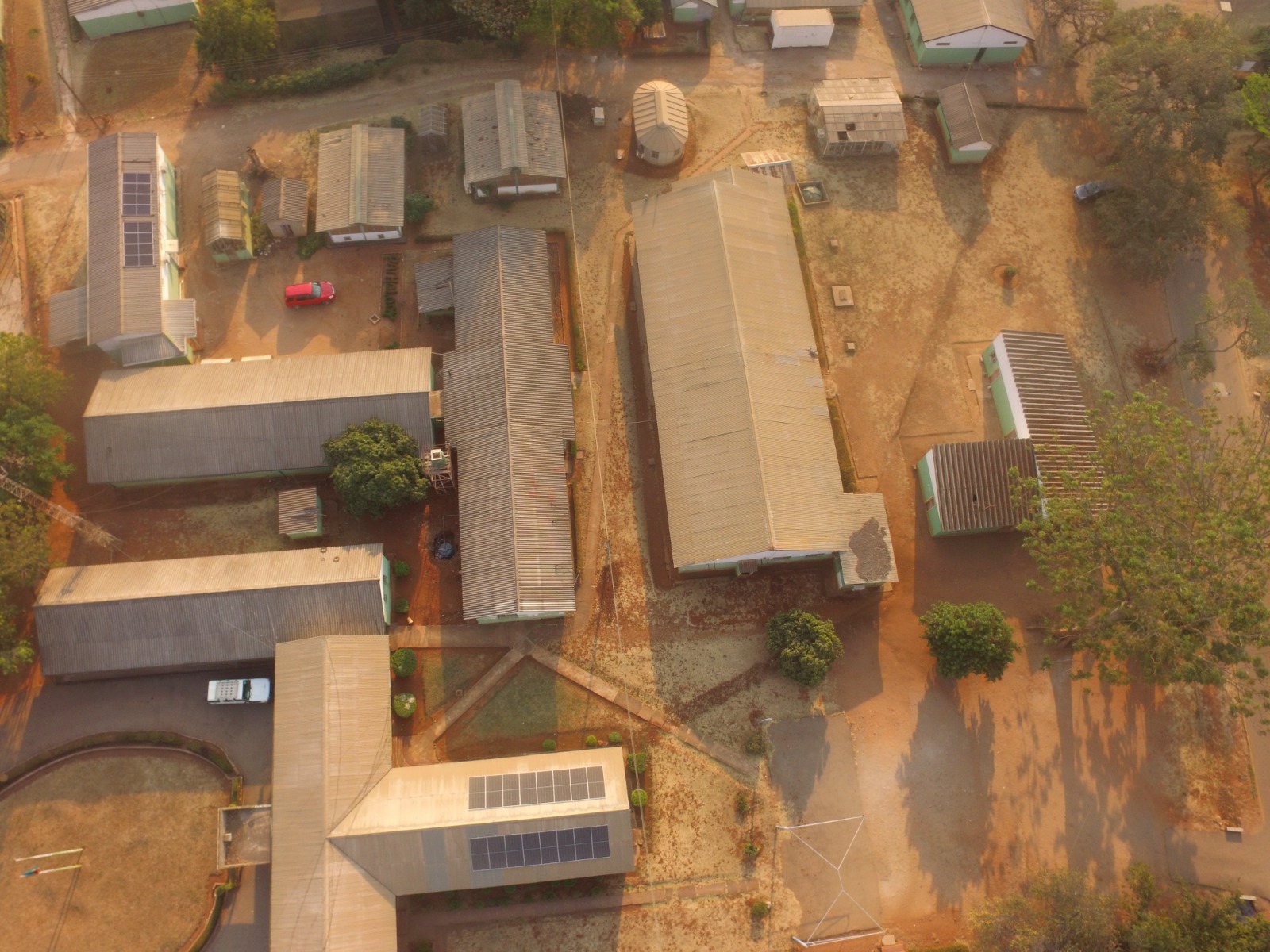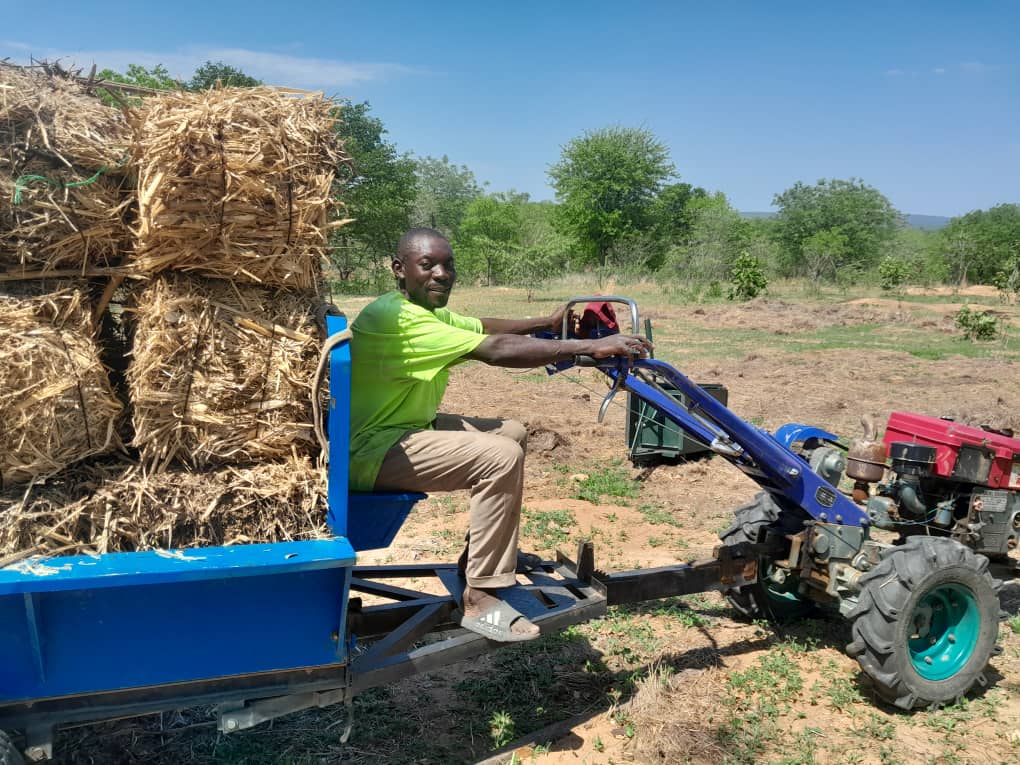Africa
CIMMYT’s work in Africa helps farmers access new maize and wheat systems-based technologies, information and markets, raising incomes and enhancing crop resilience to drought and climate change. CIMMYT sets priorities in consultation with ministries of agriculture, seed companies, farming communities and other stakeholders in the maize and wheat value chains. Our activities in Africa are wide ranging and include: breeding maize for drought tolerance and low-fertility soils, and for resistance to insect pests, foliar diseases and parasitic weeds; sustainably intensifying production in maize- and wheat-based systems; and investigating opportunities to reduce micronutrient and protein malnutrition among women and young children.
How one farmer is learning and leading the way in improved millet and groundnut seed production in Uganda
 Innovations
Innovations
Through access to drought-tolerant and disease-resistant crop varieties, Dennis Obua transformed a handful of seeds into a thriving farm, inspiring an entire community to embrace resilient farming practices
Farmer trials with improved seeds to promote seed production and improve local farming practices
 Capacity development
Capacity development
In Uganda’s Bukedea District, Nelson Ekurutu, with CIMMYT’s support, is testing improved crops to help farmers boost yields and build resilience through better seeds and practices
Atubandike: Breaking down gender barriers in Zambia’s agricultural advisory services
 Gender equality, youth and social inclusion
Gender equality, youth and social inclusion
How Atubandike is breaking barriers in Zambia’s agricultural advisory services by equipping women as digital champions and fostering gender equity through community-driven solutions that challenge entrenched stereotypes
In Zimbabwe, Women Are Leading the Battle Against Climate Change
 Climate adaptation and mitigation
Climate adaptation and mitigation
Source: Inter Press Agency ()
CIMMYT supports Zimbabwean women farmers with climate-smart practices to build resilience and sustainability
Five New CIMMYT maize hybrids available from Southern Africa Breeding Program
 Innovations
Innovations
CIMMYT announces the release of five new, improved tropical maize hybrids for licensing, offering drought tolerance, high yield, and resistance to key diseases, tailored to enhance productivity in stress-prone agroecologies of Southern Africa
Navigating the seed market and transforming agricultural productivity
 Innovations
Innovations
AgriNet connects farmers with improved seeds, processes grains for diverse markets, and collaborates with CIMMYT and NaSARRI to align research with market needs and boost agricultural productivity
Climate Change and Child Malnutrition in Zimbabwe: Evidence to Action
 Climate adaptation and mitigation
Climate adaptation and mitigation
Transforming Farming in Uganda: The journey of four farmers and their demonstration plots
 Dryland Crops
Dryland Crops
Demonstration plots in Uganda showcase improved crops, inspiring farmers to adopt resilient varieties and boost food security
Conservation Agriculture Transforming Farming in Southern Africa
 Climate adaptation and mitigation
Climate adaptation and mitigation
Source: Inter Press Service ()
CIMMYT advances conservation agriculture in Southern Africa, boosting yields, soil health, and livelihoods through climate-smart practices and innovation
How Atubandike dialogues are redefining gender and youth inclusion in Zambian agriculture
 Gender equality, youth and social inclusion
Gender equality, youth and social inclusion
CIMMYT’s Atubandike initiative empowers women and youth in Zambia, promoting inclusivity and resilience in agriculture through dialogue and capacity building.
Exploration of options for functional seed systems and understanding of market needs for cereals and pulses in sub-Saharan Africa
 Environmental health and biodiversity
Environmental health and biodiversity
The Seed Systems and Market Intelligence team of CIMMYT’s Sustainable Agri-Food Systems Programme met in Kenya for a three-day retreat to review cutting-edge research on seed systems and market dynamics.
ZARI promotes climate-smart agriculture to strengthen research excellence, innovation, and sustainability
 Dryland Crops
Dryland Crops
ZARI has become a leader in climate-smart agriculture through modernized facilities and strengthened partnerships
‘I have bigger plans ahead’ – The journey of Tichaona from odd-job man to agricultural entrepreneur
 Capacity development
Capacity development
Tichaona’s journey exemplifies the benefits of empowering local service providers in rural agriculture. Through the CGIAR Agroecology Initiative, he transformed from being a community handyman to establishing a successful agriculture business in Mbire. This in turn benefited the entire community
